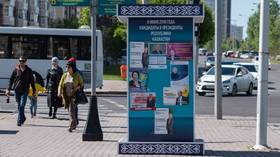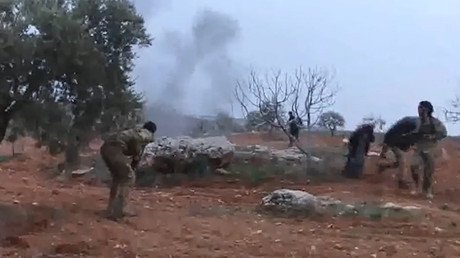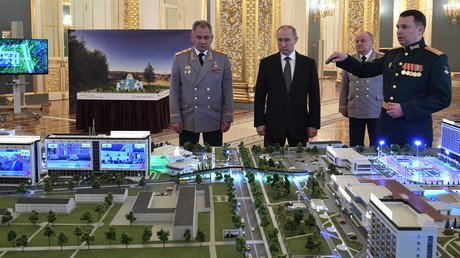Russia, China, West: Where will Kazakhstan’s next president steer the strategically placed country?

Kazakhstan is entering a new chapter as it elects a new president for the first time since becoming independent in 1991. The country is strategically placed between Russia and China and is also actively courted by the West.
There is a clear favorite among the seven candidates in this Sunday’s election in Kazakhstan – incumbent President Kassym-Jomart Tokayev – who took office after the surprise resignation of his predecessor, Nursultan Nazarbayev. The former parliament speaker could have kept his inherited position until Nazarbayev’s latest term expired, but chose to call a snap election and get a direct mandate from the Kazakh people.
Nazarbayev, a veteran politician who headed Kazakhstan since before it became an independent state, began retiring from public politics in March, picking Tokayev as his replacement as president. But the 78-year-old kept other offices, like chair of the National Security Council and head of the ruling party. So the transition of power in Kazakhstan is a gradual process marked by continuity.
Tokayev is a career diplomat, who served as the director-general of the UN Office at Geneva as well as Kazakhstan’s foreign minister before moving to the legislature. A fluent speaker of Russian, Chinese and English, he will likely find his background useful navigating his country among the interests of great powers.
For decades, Kazakhstan maintained an arms-long distance even from its closest allies, not getting involved in conflicts that didn’t directly affect the country. This neutrality policy allowed it to serve as a mediator hosting the Syrian peace talks in its capital, formerly called Astana and now renamed Nur-Sultan after the former president.
Also on rt.com From Astana to Nur-Sultan: Kazakhstan renames its capital after outgoing leader of 30 yearsKazakhstan plays an essential part in Russia’s economic integration project, the Eurasian Customs Union. Thanks to its vast territory and location, it is of significant importance for China’s Belt and Road infrastructure initiative, offering a short land way for Chinese goods to Russian and European customers. Western nations are interested in access to Central Asia and Kazakhstan’s vast oil and gas reserves.
If you like this story, share it with a friend!














